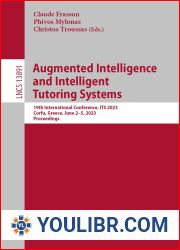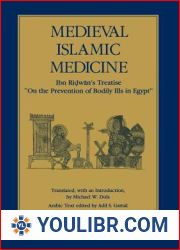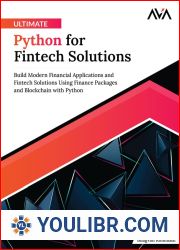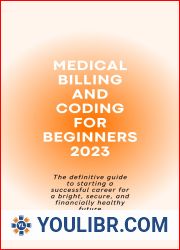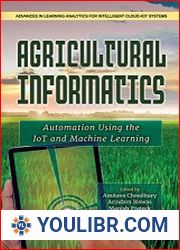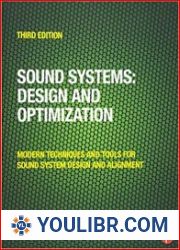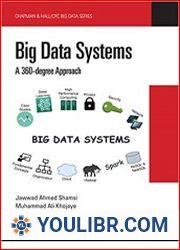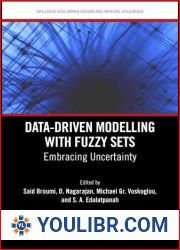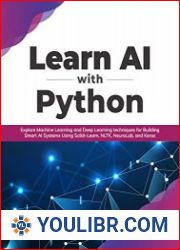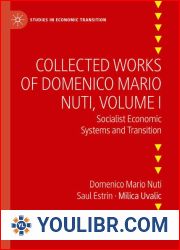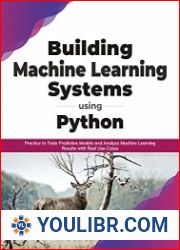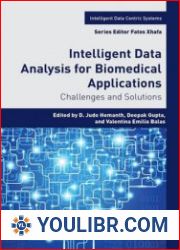
BOOKS - Financial Management Information Systems and Open Budget Data: Do Governments...

Financial Management Information Systems and Open Budget Data: Do Governments Report on Where the Money Goes?
Author: Cem Dener
Year: October 1, 2013
Format: PDF
File size: PDF 28 MB
Language: English

Year: October 1, 2013
Format: PDF
File size: PDF 28 MB
Language: English

Financial Management Information Systems and Open Budget Data: Do Governments Report on Where the Money Goes? In today's digital age, technology has evolved at an unprecedented pace, transforming every aspect of our lives. The field of finance is no exception, with Financial Management Information Systems (FMIS) playing a critical role in managing public funds and ensuring transparency in government spending. However, do governments truly report on where the money goes? To answer this question, the World Bank initiated a study in 2012 to explore the impact of FMIS on publishing reliable open budget data and its potential benefits for budget transparency. This study provides valuable insights into the current state of budget transparency globally and offers practical recommendations for governments to improve financial accountability. The Study's Objective The primary objective of this study is to assess the extent to which governments provide access to reliable, accurate, and meaningful open budget data through their public finance websites. The study focuses on the availability of budget data on the web, including revenues and expenditures, and evaluates the effectiveness of FMIS in achieving budget transparency.
Информационные системы финансового управления и открытые бюджетные данные: отчитываются ли правительства о том, куда идут деньги? В современную цифровую эпоху технологии развивались беспрецедентными темпами, трансформируя каждый аспект нашей жизни. Сфера финансов не является исключением, при этом информационные системы финансового управления (FMIS) играют важнейшую роль в управлении государственными средствами и обеспечении прозрачности государственных расходов. Однако действительно ли правительства отчитываются о том, куда идут деньги? Чтобы ответить на этот вопрос, Всемирный банк инициировал исследование в 2012 году, чтобы изучить влияние FMIS на публикацию надежных данных открытого бюджета и его потенциальные выгоды для прозрачности бюджета. Это исследование дает ценную информацию о текущем состоянии бюджетной прозрачности во всем мире и предлагает практические рекомендации для правительств по улучшению финансовой подотчетности. Цель исследования Основная цель этого исследования - оценить, в какой степени правительства предоставляют доступ к надежным, точным и значимым данным открытого бюджета через свои веб-сайты государственных финансов. Исследование фокусируется на доступности бюджетных данных в сети, включая доходы и расходы, и оценивает эффективность FMIS в достижении прозрачности бюджета.
Systèmes d'information sur la gestion financière et données budgétaires ouvertes : les gouvernements déclarent-ils où va l'argent ? À l'ère numérique moderne, la technologie a évolué à un rythme sans précédent, transformant chaque aspect de notre vie. domaine financier ne fait pas exception, les systèmes d'information sur la gestion financière (SIGF) jouant un rôle essentiel dans la gestion des fonds publics et la transparence des dépenses publiques. Cependant, les gouvernements déclarent-ils vraiment où va l'argent ? Pour répondre à cette question, la Banque mondiale a lancé une étude en 2012 afin d'examiner l'impact du SIGF sur la publication de données budgétaires ouvertes fiables et ses avantages potentiels pour la transparence budgétaire. Cette étude fournit des informations précieuses sur l'état actuel de la transparence budgétaire dans le monde et fournit des conseils pratiques aux gouvernements pour améliorer la responsabilité financière. Objectif de l'étude L'objectif principal de cette étude est d'évaluer dans quelle mesure les gouvernements donnent accès à des données budgétaires ouvertes fiables, exactes et significatives par le biais de leurs sites Web de finances publiques. L'étude se concentre sur l'accessibilité des données budgétaires sur le réseau, y compris les revenus et les dépenses, et évalue l'efficacité du SIGF à assurer la transparence budgétaire.
stemas de Información de Gestión Financiera y Datos Presupuestarios Abiertos: reportan los Gobiernos a dónde va el dinero? En la era digital actual, la tecnología ha evolucionado a un ritmo sin precedentes, transformando cada aspecto de nuestras vidas. ámbito de las finanzas no es una excepción, ya que los sistemas de información de gestión financiera desempeñan un papel fundamental en la gestión de los fondos públicos y en la transparencia del gasto público. n embargo, están los gobiernos informando realmente a dónde va el dinero? Para responder a esta pregunta, el Banco Mundial inició un estudio en 2012 para examinar el impacto del FMIS en la publicación de datos confiables del presupuesto abierto y sus posibles beneficios para la transparencia presupuestaria. Este estudio proporciona información valiosa sobre el estado actual de la transparencia presupuestaria en todo el mundo y ofrece recomendaciones prácticas a los gobiernos para mejorar la rendición de cuentas financiera. Objetivo del estudio objetivo principal de este estudio es evaluar hasta qué punto los gobiernos proporcionan acceso a datos confiables, precisos y significativos del presupuesto abierto a través de sus sitios web de finanzas públicas. estudio se centra en la disponibilidad de datos presupuestarios en la red, incluidos los ingresos y gastos, y evalúa la eficacia del FMIS para lograr la transparencia presupuestaria.
stemi di gestione finanziaria e dati di bilancio aperti: i governi comunicano dove vanno i soldi? Nell'era digitale moderna, la tecnologia si è evoluta a un ritmo senza precedenti, trasformando ogni aspetto della nostra vita. Il settore finanziario non fa eccezione, ma i sistemi informativi di gestione finanziaria (FMIS) hanno un ruolo fondamentale nella gestione dei fondi pubblici e nella trasparenza della spesa pubblica. Ma i governi fanno davvero rapporto su dove vanno i soldi? Per rispondere a questa domanda, la Banca Mondiale ha avviato una ricerca nel 2012 per esaminare l'impatto della FNIS sulla pubblicazione di dati di bilancio aperto affidabili e i suoi potenziali benefici per la trasparenza fiscale. Questo studio fornisce preziose informazioni sullo stato attuale della trasparenza fiscale in tutto il mondo e offre consigli pratici ai governi per migliorare la responsabilità finanziaria. Obiettivo della ricerca Lo scopo principale di questa ricerca è quello di valutare in che misura i governi forniscono accesso a dati di bilancio aperto affidabili, precisi e significativi attraverso i loro siti web di finanza pubblica. Lo studio si concentra sulla disponibilità dei dati di bilancio in rete, inclusi i redditi e i costi, e valuta l'efficacia della FNIS nel raggiungimento della trasparenza fiscale.
Finanzmanagement-Informationssysteme und offene Haushaltsdaten: Berichten Regierungen, wohin das Geld fließt? Im heutigen digitalen Zeitalter hat sich die Technologie in einem beispiellosen Tempo weiterentwickelt und jeden Aspekt unseres bens verändert. Der Bereich Finanzen bildet da keine Ausnahme, wobei Finanzmanagement-Informationssysteme (FMIS) eine entscheidende Rolle bei der Verwaltung öffentlicher Mittel und der Gewährleistung der Transparenz öffentlicher Ausgaben spielen. Aber berichten Regierungen wirklich, wohin das Geld fließt? Um diese Frage zu beantworten, initiierte die Weltbank 2012 eine Studie, um die Auswirkungen des FMIS auf die Veröffentlichung robuster offener Haushaltsdaten und seinen potenziellen Nutzen für die Haushaltstransparenz zu untersuchen. Diese Studie liefert wertvolle Einblicke in den aktuellen Stand der Haushaltstransparenz weltweit und bietet praktische Empfehlungen für Regierungen zur Verbesserung der finanziellen Rechenschaftspflicht. Ziel der Studie Das Hauptziel dieser Studie ist es zu beurteilen, inwieweit Regierungen über ihre öffentlichen Finanzwebsites Zugang zu zuverlässigen, genauen und aussagekräftigen offenen Haushaltsdaten gewähren. Die Studie konzentriert sich auf die Verfügbarkeit von Budgetdaten im Netzwerk, einschließlich Einnahmen und Ausgaben, und bewertet die Wirksamkeit von FMIS bei der Erreichung von Budgettransparenz.
''
Finansal Yönetim Bilgi stemleri ve Açık Bütçe Verileri: Hükümetler Paranın Nereye Gittiğini Bildiriyor mu? Teknoloji, modern dijital çağda benzeri görülmemiş bir hızda gelişti ve hayatımızın her yönünü değiştirdi. Finans bir istisna değildir, Finansal Yönetim Bilgi stemleri (FMIS) kamu fonlarının yönetiminde ve kamu harcamalarında şeffaflığın sağlanmasında kritik bir rol oynamaktadır. Ancak, hükümetler gerçekten paranın nereye gittiğini bildiriyor mu? Bu soruyu cevaplamak için Dünya Bankası, 2012 yılında FMIS'in güvenilir açık bütçe verilerinin yayınlanması üzerindeki etkisini ve bütçe şeffaflığına potansiyel faydalarını incelemek için bir çalışma başlattı. Bu çalışma, dünyadaki bütçe şeffaflığının mevcut durumu hakkında değerli bilgiler sağlar ve hükümetlere finansal hesap verebilirliği iyileştirmek için pratik öneriler sunar. Çalışmanın amacı Bu çalışmanın temel amacı, hükümetlerin kamu maliyesi web siteleri aracılığıyla güvenilir, doğru ve anlamlı açık bütçe verilerine ne ölçüde erişim sağladığını değerlendirmektir. Çalışma, gelirler ve giderler de dahil olmak üzere ağdaki bütçe verilerinin kullanılabilirliğine odaklanmakta ve FMIS'in bütçe şeffaflığına ulaşmadaki etkinliğini değerlendirmektedir.
نظم معلومات الإدارة المالية وبيانات الميزانية المفتوحة: هل تبلغ الحكومات أين تذهب الأموال ؟ تطورت التكنولوجيا بوتيرة غير مسبوقة في العصر الرقمي الحديث، مما غير كل جانب من جوانب حياتنا. ليس التمويل استثناءً، حيث تلعب نظم معلومات الإدارة المالية (FMIS) دورًا حاسمًا في إدارة الأموال العامة وضمان الشفافية في الإنفاق العام. ومع ذلك، هل تبلغ الحكومات حقًا إلى أين تذهب الأموال ؟ وللإجابة على هذا السؤال، شرع البنك الدولي في دراسة في عام 2012 لدراسة أثر نظام معلومات الإدارة المالية على نشر بيانات موثوقة للميزانية المفتوحة وفوائده المحتملة على شفافية الميزانية. تقدم هذه الدراسة رؤى قيمة حول الوضع الحالي لشفافية الميزانية في جميع أنحاء العالم وتقدم توصيات عملية للحكومات لتحسين المساءلة المالية. الهدف الرئيسي من هذه الدراسة هو تقييم مدى وصول الحكومات إلى بيانات الميزانية المفتوحة الموثوقة والدقيقة والهادفة من خلال مواقعها الشبكية الخاصة بالمالية العامة. تركز الدراسة على توافر بيانات الميزانية في الشبكة، بما في ذلك الإيرادات والنفقات، وتقيم فعالية نظام معلومات الإدارة المالية في تحقيق شفافية الميزانية.








 49
49  3 TON
3 TON

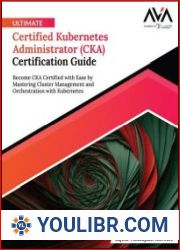

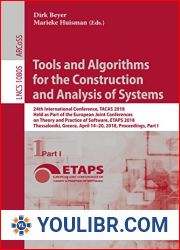
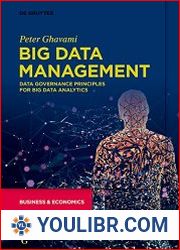

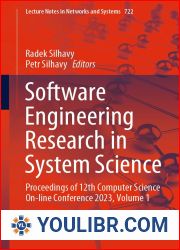
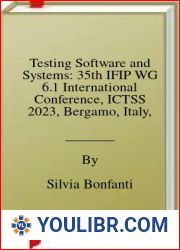



![HBR|s 10 Must Reads on Change Management by Harvard Business Review [Harvard Business Review Press, 2011] [Paperback] HBR|s 10 Must Reads on Change Management by Harvard Business Review [Harvard Business Review Press, 2011] [Paperback]](https://youlibr.com/img/6/620067_oc.jpg)




